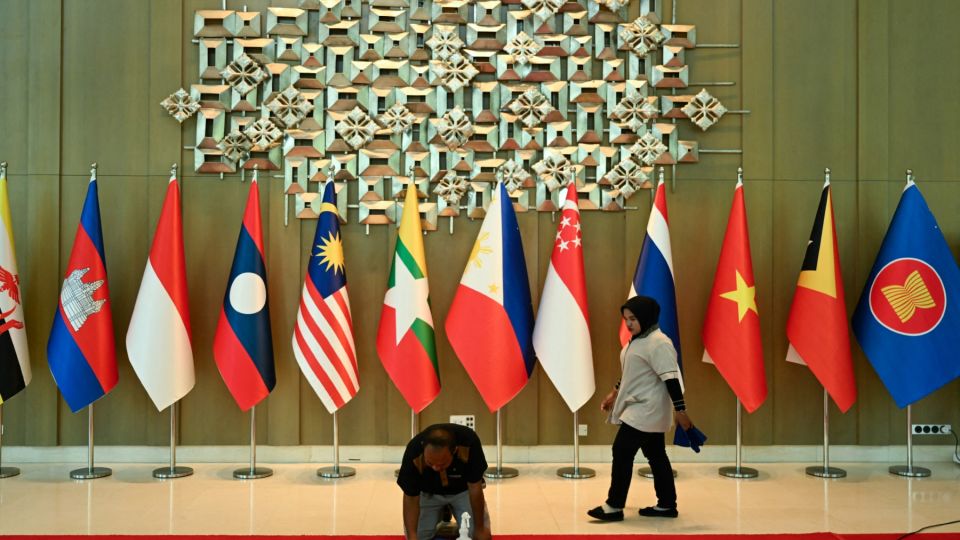November 20, 2025
SINGAPORE – A lighthearted debate has resurfaced in Malaysia about whether it should shift its clocks back by an hour, to gain more sunlight in the morning and allow Kuala Lumpur to be in the same time zone as Bangkok and Jakarta.
The idea of a common time zone across Asean is not a new one, last surfacing a decade ago and meriting discussion among ministers.
Here’s a story from The Straits Times from January 2015 on the subject.
Is it time for a common time zone in Asean?
Singapore strongly supports the idea, which it mooted some time ago, Foreign Minister K. Shanmugam has said.
The issue was brought up again at the Asean Foreign Ministers’ Retreat in Kota Kinabalu on Jan 28, 2015.
Speaking to reporters after the meeting, Malaysian Foreign Minister Anifah Aman said a common time zone for Asean capitals “is an idea worth considering”.
It would be in line with the formation of an integrated Asean Community, and airline operations and stock market activities could be better co-ordinated, he said.
When asked by the media what he thought of it, Mr Shanmugam said: “Asean today is the seventh largest economy in the world with 600 million people, (with a) GDP of more than two trillion dollars and anything that helps businesses integrate, move goods, services, work with each other seamlessly, will help the man in the street.”
He added that the discussions were at a “very preliminary level”, but all the parties there supported it. He also pointed out that the details need to be worked out, such as which time zone to choose.
“Well, you know different countries have got different ideas. Our position is ‘+8’,” he said, referring to Singapore’s current time zone of GMT+8.
Here are some other interesting facts about Asean countries’ time zones:
1. It was Singapore’s idea
The suggestion originated some 20 years ago. In 1995, then prime minister Goh Chok Tong mooted the idea of a common time zone at the 5th Asean Summit, according to past reports. It was brought up again in 2004 by then Malaysian Prime Minister Abdullah Badawi.
2. A brief history of time in Singapore
On Jan 1, 1982, Singapore and Peninsular Malaysia “gained” half an hour when the territories jumped from GMT+7:30 to GMT+8, in line with East Malaysia.
When West Malaysia decided to change its time zone so that the entire country would be on the same time, Singapore followed suit to facilitate business and travel between the two countries.
This was not the first time Singapore had switched time zones. During the Second World War, the island adjusted its clocks from GMT+7:30 to GMT+9. The Japanese occupiers wanted all of Malaya to follow Tokyo time.
Going by geographic division of time zones around the world, Singapore falls within the GMT+7 region.
3. One time too many in Indonesia
Indonesia’s thousands of islands are scattered over three time zones. From GMT+7 in Aceh to GMT+8 in Bali, and GMT+9 in West Papua. Major cities are concentrated on the island of Java, which adheres to GMT+7.
In 2012, a plan for a single time zone for the country was hatched, but it was put on hold, and has yet to be implemented. The time zone proposed then was GMT+8.
4. Once upon a time in Thailand
Back in 1993, Thailand’s then commerce minister said Thailand should shift its time zone by one hour to GMT+8, to boost the kingdom’s competitiveness.
China and Hong Kong are also in the GMT+8 time zone.
Then in 2001, the idea to bring its stock exchange into the same zone as its neighbours’ was mooted again when former premier Thaksin Shinawatra came to power. But it failed to gain any traction and was dropped.
5. Pros and cons of a common time zone
A common time zone would make it easier for Asean countries to co-ordinate trade, business dealings and transport links.
There would be better co-ordination between stock markets and banks if their opening and closing hours were the same in all the capitals.
It has been pointed out that a common time zone would also enable government agencies, especially enforcement agencies, to streamline actions and procedures.
However, South-east Asian countries are quite evenly split between two time zones now. The adoption of one time zone or the other would mean earlier or later daylight hours for many South-east Asians.

